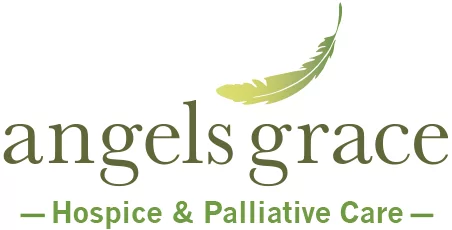 Of course a patient or the Patient’s POWER OF ATTORNEY FOR HEALTHCARE (POAHC) may refuse hospice care or any other care that may be offered/suggested. Patients will sometimes refuse further chemotherapy, radiation therapy, surgery or feeding tubes.
Of course a patient or the Patient’s POWER OF ATTORNEY FOR HEALTHCARE (POAHC) may refuse hospice care or any other care that may be offered/suggested. Patients will sometimes refuse further chemotherapy, radiation therapy, surgery or feeding tubes.
First, it is important to consider why hospice was ordered or discussed. In order to have hospice you have to have two MD’s agree that if the disease follows its expected course patient will have a prognosis of 6 months or less. Prognostication is not science, MD’s often have difficulty determining prognosis, hospice patients often live longer than that and Medicare takes that into consideration.
Why Do Some People Refuse Hospice Care?
Sometimes patients or families do not consider hospice because they do not want to have the difficult conversation surrounding decline, end of life care, the plan for end of life and eventual death. Even doctors may avoid the conversation; one survey noted as many of 46% of MD’s felt unsure of how to bring up end of life and hospice care. Sometimes just the word HOSPICE can bring up negative thoughts of someone very close to death, in their final few days, The Medicare guideline for prognosis of 6 months or less, having hospice for a longer period, gives the hospice team time to build a relationship with the patient and family. An earlier referral to hospice gives the patient and hospice team time to develop a patient driven plan of care, helping to identify patient’s goals, and also gives the patient and team time to build a relationship with the team that will walk this journey with you.
Understanding What Hospice Care Is and What It’s Not
Having more information about hospice care, knowing pros and cons, myths and rumors can certainly help you make an informed decision about your care or the care of a loved one. Certainly if you are POAHC if your loved one has a living will, that will help you to follow the wishes of your loved one.
Some of the myths surrounding hospice can prevent patients and families from accessing hospice care:
- Hospice is for the last few days of life
- Hospice makes you stop all medications
- Once on hospice “they” will quit feeding you
- You can no longer go to/see your primary MD
- Sounds expensive, I can’t afford any more bills
- You give up control when you sign up for hospice
- I know someone who had a bad experience and I just don’t know how to find out if the hospice suggested is one that will work for me/my family.
Let’s de-myth:
- As discussed previously, hospice is available to those with a prognosis of 6 months or less
- The Angels Grace Hospice nurse will review medications with you and our Angels Grace Hospice Medical Director. Studies have shown concerns re: polypharmacy, one study found the average hospice patients often have 15 medications. Patients are often tired of taking so many medications. After the Angels Grace Hospice team reviews medications, they may help discontinue some medications that are not for symptom management or comfort. ie: Vitamins, drugs to lower cholesterol. These decisions will be made with the patient/family input.
- Angels Grace Hospice does not withhold food/drink to anyone who can safely eat or drink. Hospice will educate on not feeding a patient who is not responsive for safety reasons.
- Medicare allows patients to identify a MD on the Medicare consents. The doctor named may be seen for comfort rather than curative reasons. Medicare also allows hospice patients to see MD’s to treat conditions not related to their hospice diagnosis.
- Medicare, Medicaid and most insurance policies cover the cost of hospice. In addition to hospice staff of Registered Nurse, Certified Nurse Assistants, Social Worker, Chaplain, volunteers, under the Medicare benefit, supplies such as adult briefs, skin prep, wound dressings are provided by the hospice team. Medicare hospice benefit also provides durable medical equipment such as: oxygen, a hospital bed or wheel chair. You and your hospice RN case manager will work together to determine what supplies/equipment are needed to help you remain as comfortable and independent as possible.
- Angels Grace Hospice staff works closely with patient and family to determine goals, which may even include how often staff will visit, determining what treatments, medications or services they want. The end result of hospice care planning is giving back control to those who may have been seeking aggressive treatment when all treatments are part of a regimen that does not allow for much deviation.
- The majority of hospice patients or families tell Angels Grace Hospice, “ I don’t know how we would have managed without your team!” Word of mouth is certainly a reliable avenue in choosing a hospice. You can also look at family surveys through Medicare.gov/Hospice Compare.
One of the services Angels Grace Hospice provides is the ability to talk with a knowledgeable person about what does hospice do? Provide? We can provide that discussion with you over the phone or set up an appointment to review services and even look at the Medicare consents without the pressure of having to think of signing up that day.
Of course you can refuse hospice care, but you would be giving up a team of experts of end of life care, a team of professionals who will help you learn the skills of how to take care of a person at the end of their life. Angels Grace Hospice would be happy to discuss your concerns with no pressure to try to get you signed up or change your mind. You and your family will feel better knowing you can take some time to make the decision for what your next steps will be, armed with education.
At Angels Grace Hospice, in Bolingbrook, IL we provide customized care plans specific to each of patients and their families. We provide end-of-life care at home, hospitals, skilled nursing homes or assisted-living facilities depending on individual circumstances. Contact us with any questions and for further assistance with your end of life care options.


